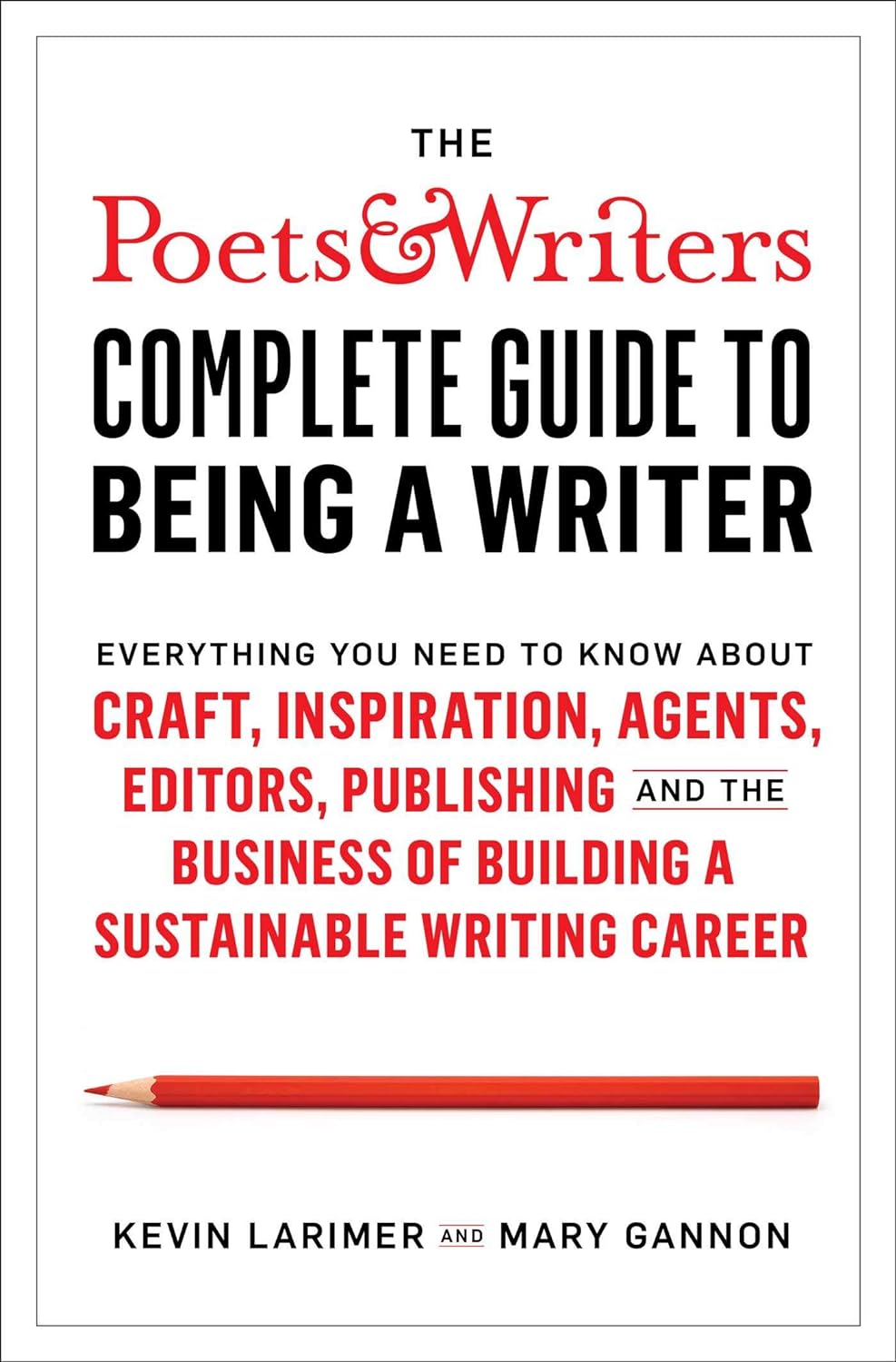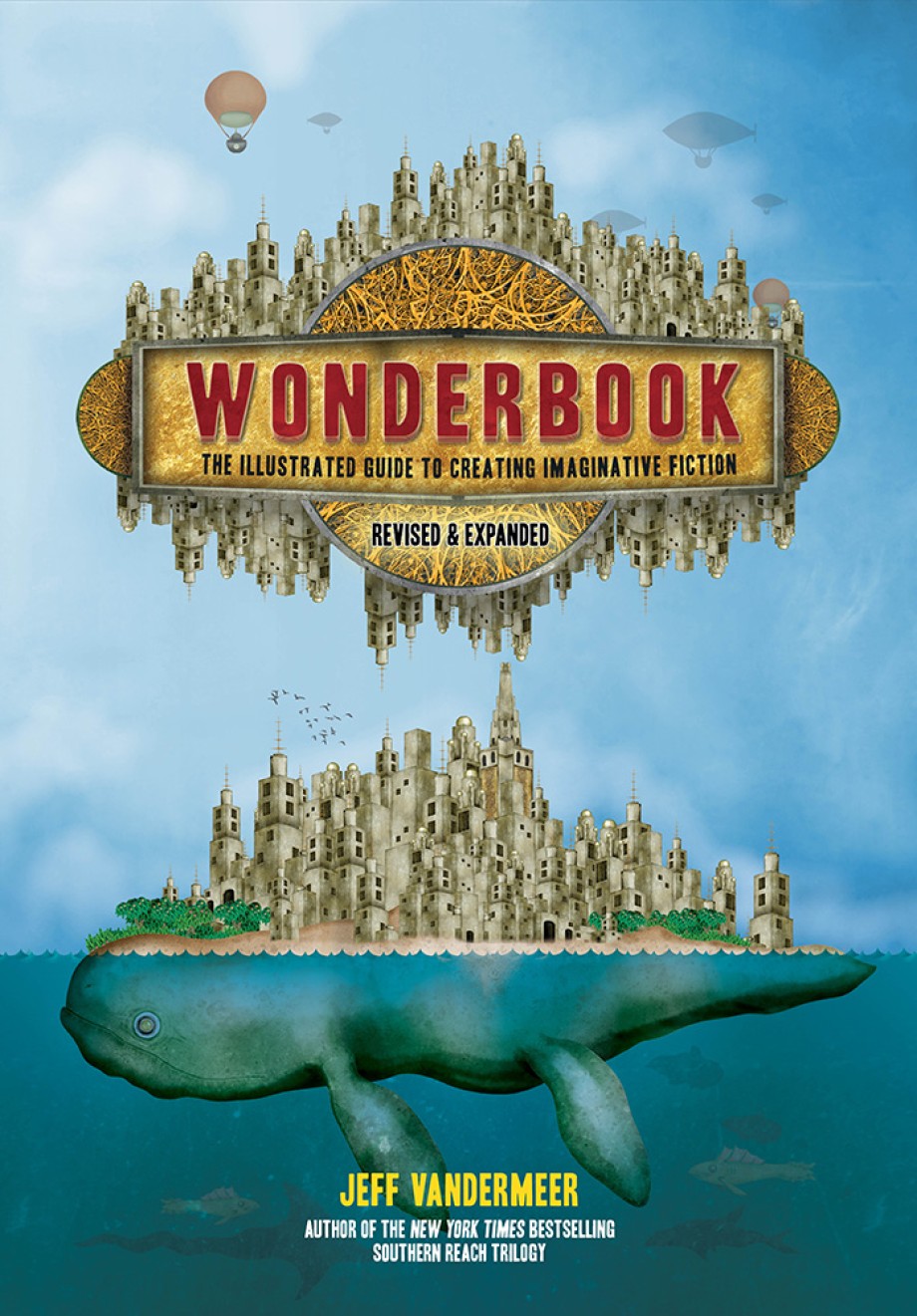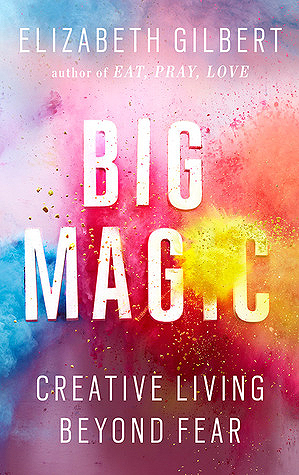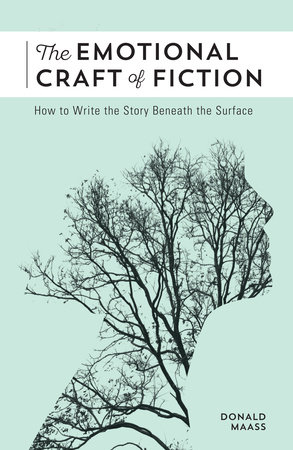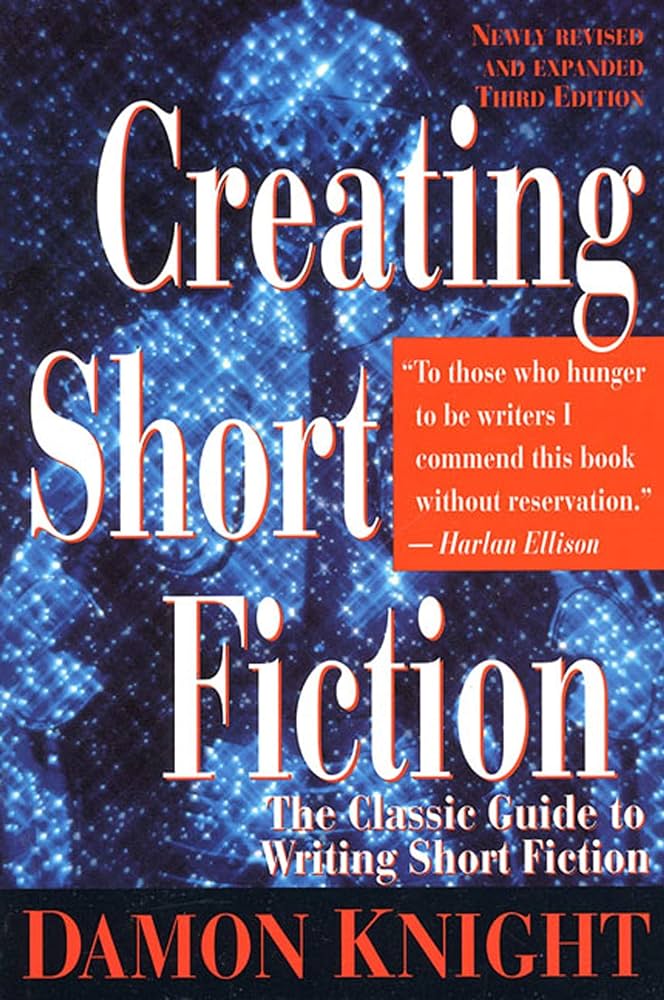Researching this forum and talking to fellow writers, I've seen a dismaying amount of poor advice from other users being stated as Truth And Nothing But--which is not to discount the incredible amount of good advice that is also concurrently happening.
So, I want to hear from everyone on their single favorite book about the craft or practice of being a writer. Here's mine: The Poet & Writers Complete Guide to Being a Writer by Kevin Larimer and Mary Gannon.
This book has been a fabulous aid for me in understanding the motivation, education, and pursuit of being writer. It's written by one of the most trusted writing magazines in the country, with stellar contributors. It helps debunk the process of becoming a published author and provides reading lists, exercises, and encouragement.
@tj_knight, @morgan-broadhead, @doctorjest, @ease, @storysinger, @martin-l-shoemaker, @crlisle, @writhmic, @undreamedages, @gideonpsmith, @atkirk, @wulfmoon, @lost_bard
Ken Rand's 10% Solution. Great guide to editing and cutting fluff.
R:6 RWC:1 HM:9 SHM:3
My Blog
Small Gods and Little Demons - Parsec Issue #10
Ken Rand's 10% Solution. Great guide to editing and cutting fluff.
Funnily enough I was just re-reading Ken Rand's 10% last night (I'm near the end of a novel rewrite and I find that the perfect time to apply this books lessons, but my brains like a sieve and so I often have to re-review materials).
For me nothing has so far beat Ursula K LeGuin's Steering the Craft.
That being said I think we are ready for different books at different times. Ken Rand's book would be virtually useless if you'd never written anything and were staring at a blank page. But if you have a complete manuscript - either short or long - its a great tool for meaningful editing.
And there are also going to be different books that are good for different markets. So @sade your rec above sounds good as a general intro, but there's always a balance between depth breadth and length. I am sure @wulfmoon own book a How to Write a Howling Good Story is a good read for most here as its directly aimed at beginner writers and at this competition.
"...your motivations for wanting to write are probably complex. You may have a few great passions, you may want to be rich and famous, and you may need therapy."
- Dave Farland, Million Dollar Outlines
Writers of the Future:
2025 Q1: HM Q2: SHM Q3: P Q4: TBD
2024 Q1: F Q2: HM Q3:SHM Q4: SHM
2023 Q1: RWC Q2: SHM Q3: SHM Q4: R
2022 Q4: R
Submissions to other markets:
2025: 82 submitted 4 acceptances
2024: 53 submitted 8 acceptances
2023: 74 submitted 13 acceptances
2022: 22 submitted 1 acceptance
2025 goals: a. New Novel b. New piece submitted/month c. 100 rejections
At the moment I'm reading `Take Off Your Pants`, but I'm going to call out a different book entirely, as I feel it fits so well with the thread's opening. The whole point of this book is to think about writing differently, and to understand story structure, but not to follow specific rules about it, and it is:
Jeff VanderMeer's Wonderbook is the writing book I'd recommend to people who've found other writing books just don't work for them. It includes small interludes from other writers (Neil Gaiman, Nnedi Okorafor, Ursula K. Le Guin, and many more) talking about their own approach to and experience of craft, and really comes at the whole experience as an artistic flow, rather than a set of tools to be learned and applied.
I don't, by any means, dismiss the others--I love the 10% solution, and take off your pants has been great for me as well. But the Wonderbook is difficult to pin down, save that it feels to me like a blend of equal parts lesson, inspiration, and liberation. I keep returning to it and starting over, because by its nature, there always feels like something new to find in it.
Also, this book is full of art, all fuel for new ideas. It's a beautiful volume in all its incarnations, and more recent versions have been revised with snippets from even more writers.
DQ:0 / R:0 / RWC:2 / HM:15 / SHM:7 / SF:1 / F:1
Pending: Q3.V42
I have to pick just one?!? Okay, then I'll have to go with Big Magic by Elizabeth Gilbert. What being a creative person is, and also what it isn't.
"There are three rules to writing a novel. Unfortunately, no one knows what they are."
— W. Somerset Maugham
Drop me a line at https://morganbroadhead.com
SFx1
HMx6
R/RWCx6
Sol Stein's Stein on Writing has been very helpful to me. Also, I learned a great deal working through the exercises in Steering the Craft.
@pdblake I feel like I've heard of this elsewhere, thanks for the recc!
@doctorjest The cover alone has me sold, it looks amazing. And the contributions are from some of my very favorite sci-fi writers. Thank you, I'll definitely be ordering this.
@morgan-broadhead Ooh, I just got this one from the bookstore the other day, and it's sitting among my TBR. Elizabeth Gilbert is brilliant.
@emlouviere You know, I haven't read much of Ursula K. LeGuin's nonfiction, but Steering the Craft has always been on my radar. I'm not familiar with Sol Stein's writing, I'll have to look them up.
@morgan-broadhead Ooh, I just got this one from the bookstore the other day, and it's sitting among my TBR. Elizabeth Gilbert is brilliant.
I recommend listening to the audiobook version, where Elizabeth reads to you. #fullexperience
"There are three rules to writing a novel. Unfortunately, no one knows what they are."
— W. Somerset Maugham
Drop me a line at https://morganbroadhead.com
SFx1
HMx6
R/RWCx6
@sade, Since someone already mentioned @wulfmoon's How to Write a Howling Good Story (officially published Nov 7th wherever fine books are sold, and I 100% recommend it!), the other book on craft that I would most recommend is The Emotional Craft of Fiction by Donald Maass. It helped me shift from dry stories that held the reader at arm's length to immersive stories that make the reader laugh, cry, and cheer. Not-coincidentally, I was reading this book when I crafted my WotF winning story. Emotionally immersive stories make a difference.
Death and the Taxman, my WotF V39 winning story is now a novel! (Click Here >).
Death and the Dragon launches on Kickstarter August 27th. (Click Here >)
Subscribe to The Lost Bard's Letter at www.davidhankins.com and receive an exclusive novelette!
New Releases:
"The Missing Music in Milo Piper's Head" in Third Flatiron's Offshoots: Humanity Twigged
"To Catch a Foo Fighter" in DreamForge Magazine
"Milo Piper's Breakout Single that Ended the Rat War" in LTUE's Troubadours and Space Princesses anthology
"The Rise and Fall of Frankie's Patisserie" in Murderbugs anthology
"Felix and the Flamingo" in Escape Pod
"The Devil's Foot Locker" in Amazing Stories
I've got The Emotional Thesaurus on my desk. My daughter bought me it, very useful to avoid repetition in trying to show emotion and the actual body language involved.
R:6 RWC:1 HM:9 SHM:3
My Blog
Small Gods and Little Demons - Parsec Issue #10
Most of you never got the chance to learn from Dave. This is the next best thing.
Million Dollar Outlines by David Farland
It’s the writing book I quote more than any other (even my own).
I recommend his other books as well, but you asked for one.
http://nineandsixtyways.com/
Tools, Not Rules.
Martin L. Shoemaker
3rd Place Q1 V31
"Today I Am Paul", WSFA Small Press Award 2015, Nebula nomination 2015
Today I Am Carey from Baen
The Last Dance (#1 science fiction eBook on Amazon, October 2019) and The Last Campaign from 47North
I agree with the right book at the right time. I read OSC's books when I needed to read them - early on. Now, my fav is the Pants! book (I know I've mentioned it before, perhaps once or twice, but wanted to answer the posed question ? ).
I do love Dave's books. His book on resonance is phenomenal as well. I use those tricks often, and as if in challenge to put something in and not have it be noticed, but totally felt. It's an extra fun challenge for me because I'm so affiliated with media/movies. So I get some in that I might be the only dude who recognizes a particular nod, but it's fun, so I do it anyway.
Career: 1x Win -- 2x NW-F -- 2x S-F -- 9x S-HM -- 11x HM -- 7x R
Like me: facebook/AuthorTJKnight
Substack-subscribe (It's free!) substack.com/@thomasjknight
I love Dave's books, but my favorite is On Writing by Stephen King. The more I learn the more I refer back to the simple lessons he imparts there. I've read a lot of craft books and all the above listed are great, but if you haven't read On Writing I highly recommend it. I reread it about once a year.
V34: R,HM,R
V35: HM,R,R,HM
V36: R,HM,HM,SHM
V37: HM,SF,SHM,SHM
V38: (P)F, SHM, F, F
V39: SHM, SHM, HM, SHM
Published Finalist Volume 38
Pro’d out Q4V39
www.rebeccaetreasure.com
Managing Editor, Apex Magazine
It might be different another day, but as I can only pick one, I'll say Science Fiction 101 by Robert Silverberg. It's an anthology of great stories, each one critiqued by Silverberg.
35: - R R R | 36: R HM R R | 37: HM HM HM SHM | 38: HM HM HM HM | 39: HM HM HM SHM | 40: HM R SHM SHM | 41: R HM SHM R
5 SHM / 13 HM / 9 R
I'm currently reading Maass' "The Emotional Craft of Fiction" and finding it to be quite valuable. And I have a good-sized and well-curated library of other craft books. But this one from Damon Knight is my all-time fave.
Right now my favorite writing book is Story Genius (How to use brain science to go beyond outlining and write a riveting novel) by Lisa Cron. I enjoy reading everyone about else's favorite and now I have to go buy more craft books.
~~ Pegeen ~~
Be soft. Do not let the world make you hard. Do not let pain make you hate. Do not let the bitterness steal your sweetness. Take pride that even though the rest of the world may disagree, you still believe it to be a beautiful place. Kurt Vonnegut, Jr. Writer
Several entries...not keeping track.
Great advice. It's very helpful for me.
I'm currently reading Maass' "The Emotional Craft of Fiction" and finding it to be quite valuable. And I have a good-sized and well-curated library of other craft books. But this one from Damon Knight is my all-time fave.
This is one of my favourites too. I bought it after reading Damon Knight's story in the book I mentioned above your post! 😊
I haven't got much useful from "The Emotional Craft of Fiction." I gave up about half way through and feel I'm really missing out given how valuable it is to so many people.
35: - R R R | 36: R HM R R | 37: HM HM HM SHM | 38: HM HM HM HM | 39: HM HM HM SHM | 40: HM R SHM SHM | 41: R HM SHM R
5 SHM / 13 HM / 9 R
Are we talking about short stories specifically? My favorite craft books (and I've read way too many) are as follows:
Almost anything by Holly Lisle. The only book of hers I haven't jibed with was her world-building book. I have my method that I like. I also have my own plotting method, so I don't care for hers much. I like her other stuff well enough that I can say that I've borrowed bits and pieces of her methods from nearly all of them.
The Thesaurus books are all fantastic. They include titles like the Emotional Thesaurus and Occupation Thesaurus.
If you haven't already checked out Margie Lawson's lecture packets, do so. Trust me, you'll be a fantastic line editor by the time you're done.
How to Write a Novel Using the Snowflake Method is how I always start my plotting. This is probably one of the best plotting books out there.
Save the Cat! Writes a Novel is what I use as a guideline as I'm getting my scenes to make sure I have an engaging three-act narrative. I'm not too picky about hitting every single beat in the beat sheet, but I usually hit most or all of them anyway.
Those are my favorites. I have many, many craft books, but those are the ones I can think of off the top of my head that I find myself going back to most often.
@lost_bard I second this one. Reading this guy's books - especially the emotional craft one - helped me get much more emotionally deep with my work and frankly made writing more fun for me. I would go so far as to say that reading that book is one of the things that helped me place as a winner in WOTF.
“Stories are the collective wisdom of everyone who has ever lived. Your job as a storyteller is not simply to entertain. Nor is it to be noticed for the way your turn a phrase. You have a very important job—one of the most important. Your job is to let people know that everyone shares their feelings—and that these feelings bind us. Your job is a healing art, and like all healers, you have a responsibility. Let people know they are not alone. You must make people understand that we are all the same.”
Brian McDonald
2022: Second Place Winner V39 Q1
2021: HM, HM, SHM
2020: R
2019: SHM, R
2018: HM
2017: HM
Check out my fiction and more at spencersekulin.net
I've been reading Fantasy Fiction Formula by Deborah Chester. I've learned a lot, especially her section on scene and sequel.

